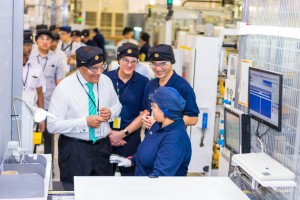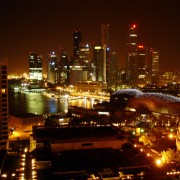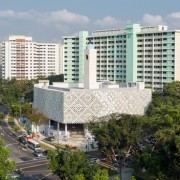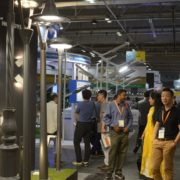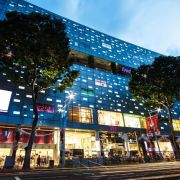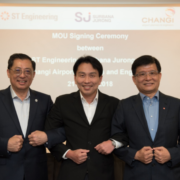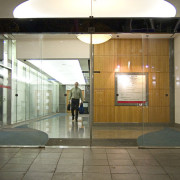REC invests S$200 million to automate and upgrade technology over the next three years
Minister Iswaran on a tour of REC’s global HQ and manufacturing facility in Tuas, Singapore.
As escalating climate change remains the biggest challenge today and the nascent renewable energy sector picks up speed, REC, a global provider of solar energy solutions, has announced a total investment of S$ 250 million in automation, technology upgrade and research and development (R&D) efforts to unleash the full potential of solar as a source of renewable energy.
At its manufacturing facility in Tuas and in the presence of Minister for Trade and Industry (Industry), S Iswaran, this morning, REC unveiled plans to invest S$200 million in Singapore that will further increase its productivity and efficiency through automation and technology upgrading.
This will fully convert all 1.3 GW of REC’s solar modules capacity in Singapore to TwinPeak production. These panels yield the highest energy efficiencies as compared to any other multi-crystalline panels that are mass-produced today. Committed to its vision that every person benefits from electricity generated directly from the sun, REC’s move to expand its capacity and technology with sustainable, reliable and high performing products is closely aligned with the Singapore government’s plans to grow the cleantech sector.
The Singapore government has recently announced about S$900 million of R&D budget in Urban Solutions and Sustainability, one of four key technology domains to be funded under the national Research, Innovation and Enterprise (RIE) 2020 Plan. This RIE initiative, amounting to S$19 billion, maps out the focus for Singapore’s R&D efforts for the next five years.
Said Steve O’Neil, CEO, REC, “With such a strong commitment to cleantech innovation, Singapore is the ideal location for REC to channel new innovations and push the boundaries for solar solutions. We are very excited to share our roadmap for advancements in solar energy production as we dedicate resources for research and development into our game-changing TwinPeak solar panels.”
Minister Iswaran speaking with a REC employee.
Lauded for its high performance, the high power 120-cell module, Twin Peak, was launched by REC last year. Developed based on Passivated Emitter Rear Cell (PERC) technology and half-cut cells, TwinPeak solar panels convert more sunlight into electricity as compared to standard modules, effectively allowing customers to derive the most energy and value out of their installations.
For commercial, industrial and residential entities in Singapore, this is of extreme importance, given the limited rooftop space. Putting it into context, REC’s recent 2.2MW TwinPeak installation in Singapore is able to generate an additional 157MWh of clean energy annually as compared to standard panels.
The additional clean energy produced by TwinPeak panels can power up to 38 HDB 5-room flats yearly or the equivalent of 1,088 light bulbs. Similarly, it is also able to mitigate an additional 80 tonnes of carbon dioxide annually – the amount that takes the planting of 3,200 new trees to offset.
REC also announced today, an investment of S$50 million in the development of a novel solar panel with 350 watt power, over the next five years. In partnership with the Solar Energy Research Institute of Singapore (SERIS) at the National University of Singapore (NUS), Singapore’s flagship solar energy laboratory, this technological breakthrough will generate 1.35 times more energy, at a comparable cost and size to standard multi-crystalline modules.
Said Prof. Armin Aberle, CEO, SERIS, “Collaborations between university institutes and industry are very beneficial for growing the solar sector, especially when it comes to developing and commercialising new technologies. With REC on board to further the green agenda in Singapore and the region, we believe this will stimulate other companies to follow suit and enhance their R&D investments to address the issues of climate change and dwindling resources.”
The Minister visited the Cells and Modules production.
Added O’Neil, “REC constantly strengthens its position as a leader in terms of solar panel reliability, performance and cost. With SERIS’ support, we’re in a good position to ride on market opportunities where growth prospects remain positive.”
A memorandum of understanding (MOU) was also signed between REC and SERIS.
“We warmly welcome REC’s S$200 million solar manufacturing expansion, which will further strengthen Singapore’s cleantech industry ecosystem. The investment is testament to the competitiveness of Singapore’s advanced manufacturing sector in terms of engineering talent, automation expertise and supplier base,” said Yeoh Keat Chuan, Managing Director, Singapore Economic Development Board (EDB). “REC’s S$50 million R&D collaboration with SERIS will accelerate the commercialisation of innovative solar technologies in Singapore,” he added.



